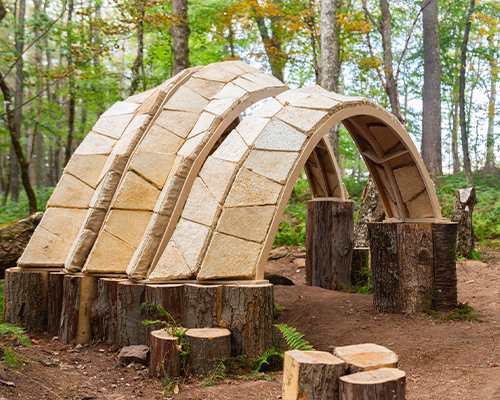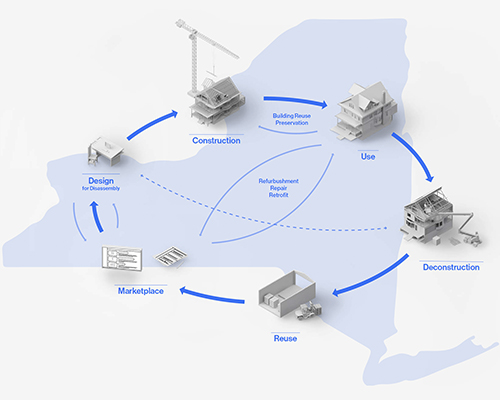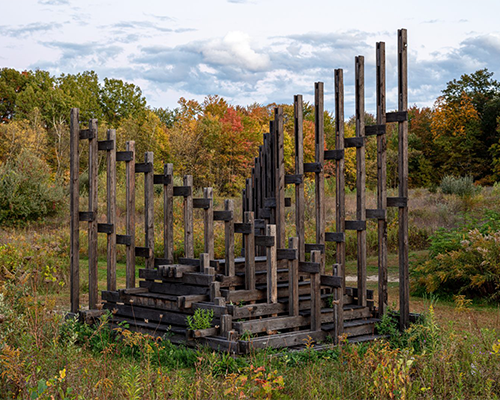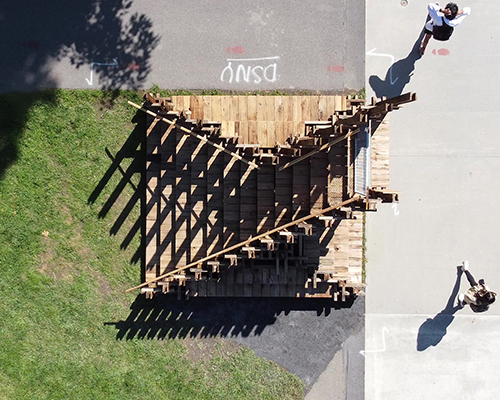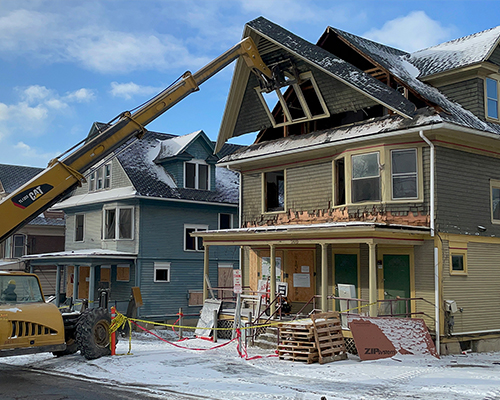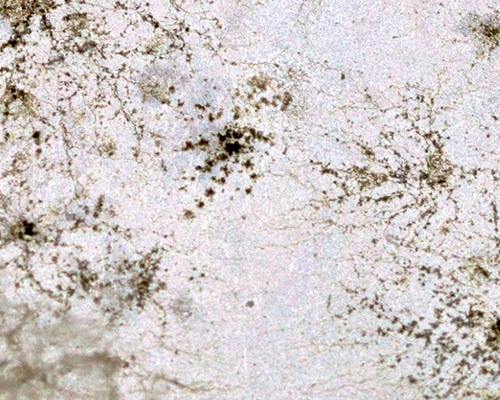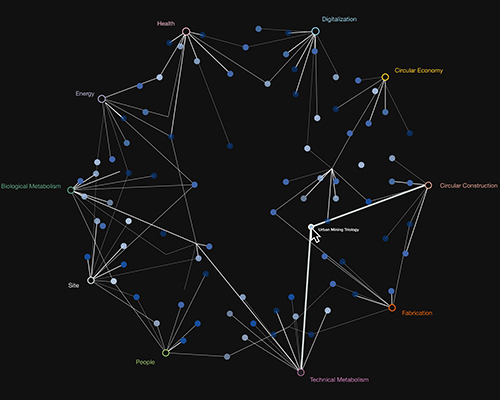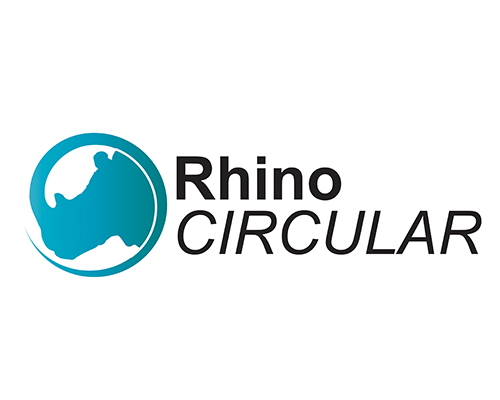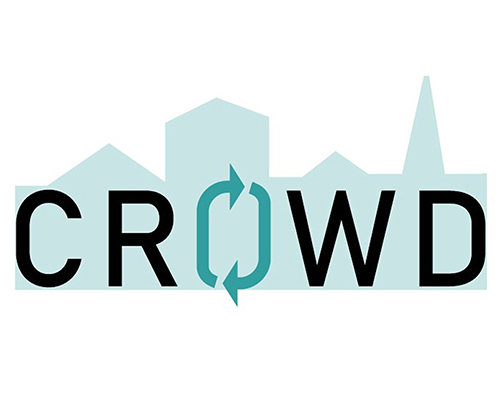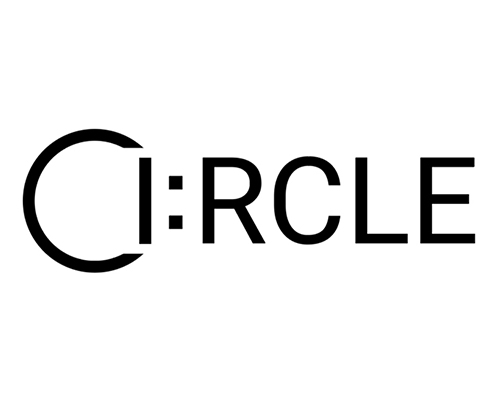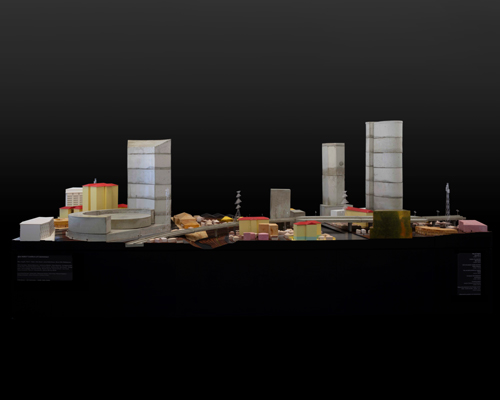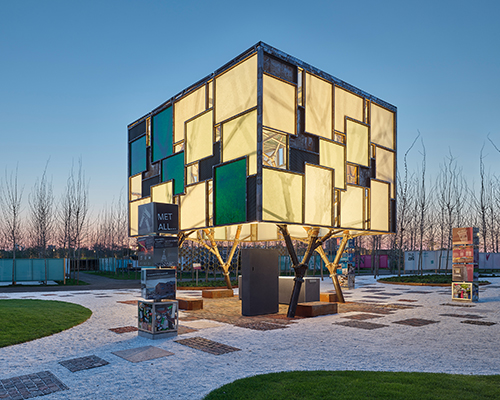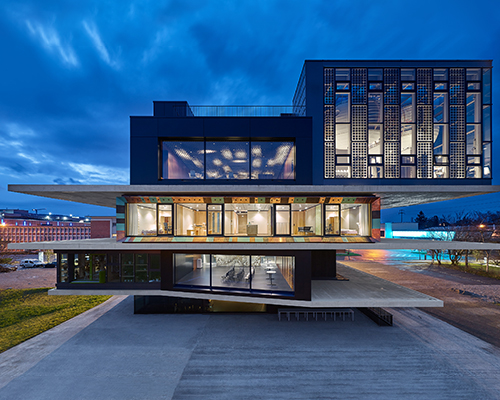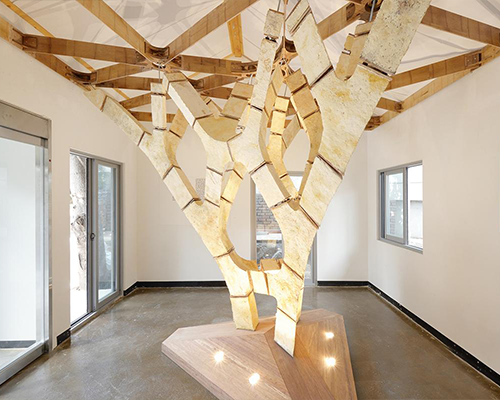Research
2024 - DESIGN BUILD
MycoShell
MycoShell is an installation that exhibits the potential of biological self-growing and adaptive building materials toward a collaborative future of the digital and the analog. Designed to reflect the advancing research of the MycoBuilt project, a cross-disciplinary collaboration of faculty and students in mycology, engineering, and architecture at Cornell University, MycoShell is constructed of structural mycelium-bound composite panels that have been grown from a local fungal strain of the Ganoderma family on regional agricultural by-products of corn and hemp. Additionally reinforced with natural fibers, the result is a bio-based, carbon-negative, and fully circular building component with structural capacities.
2024 - NYS WhitePaper
Constructing a Circular Economy in NYS: Deconstruction and Building Material Reuse
The Circular Construction Lab and Just Places Lab, and CR0WD are excited to announce the publication of the co-authored white paper, “Constructing a Circular Economy in New York State: Deconstruction and Building Material Reuse.” The transition from a linear to a circular construction economy represents the possibility to unlock billions of dollars, introduce thousands of new green jobs, divert millions of tons of waste, and prevent 75% of embodied carbon emissions. This white paper provides valuable data and recommendations for the policy and practice changes necessary to meet New York State’s climate goals while realizing significant untapped economic potential.
2023 - DESIGN BUILD
Circulating Matters 2
Circulating Matters 2 explores the potential of a local circular construction industry in New York State. The project reuses materials from the Catherine Commons Deconstruction Project (a former 1910 residential building in Ithaca, NY), reactivating the material qualities and values for the construction of this installation. The design plays on concepts of circulation and circularity by reimagining a staircase as a multi-directional, spatial folly engaging with its present surroundings, material pasts (patina, dimensions of the pieces), and futures (reversible connections, design for disassembly). After being displayed initially at the 2022 Cornell Biennial, the installation has been deconstructed, redesigned, and reassembled for its new location at Art Omi following its design for disassembly principles.
2022 - DESIGN BUILD
Circulating Matters
Circulating Matters explores the potential of a local circular construction industry in Ithaca, New York. The project directly reuses materials from the Catherine Commons Deconstruction Project (a former 1910 residential structure that has been deconstructed by academic and community stakeholders within an Engaged Cornell Grant in January 2022), reactivating the material qualities and values of the building for the construction of the installation. The spatial design plays on concepts of circulation and circularity by re-imagining a staircase as a multi-directional, spatial folly engaged with its materials’ past (patina, dimensions) and future (reversible connections, design for disassembly).
2022 - EXHIBITION
Deconstructing -Demolition-
An Exhibition on Salvage, Reuse and Deconstruction
The exhibition combining physical building materials with augmented reality and interactive visuals is intended to introduce a general audience to the negative externalities of extant demolition practices and provide information on alternatives in the form of salvage, reuse and deconstruction. Alternatives to demolition are presented through the lenses of environmental sustainability, preservation of community value, employment opportunity, and a reimagining our relationship to the built environment.
2022 - RESEARCH
Catherine Commons Deconstruction Project
The Catherine Commons Deconstruction Project describes the penalized deconstruction of a 1910 residential building in Ithaca, NY. The project is unique as it allows a side-by-side comparison of demolition and deconstruction processes on almost identical buildings within the same economic setting. The case study includes comprehensive research on deconstruction’s local potential, documenting the quantity and quality of materials saved to the resale market, the time and labor required, and the total cost – including environmental and social costs that are typically not factored into construction and demolition budgets.
2021 - RESEARCH
MycoBuilt
MycoBuilt represents a cross-disciplinary research collaboration leveraging the expertise of biologists, engineers, architects and economists from Cornell University and external industry partners to develop both new technologies and a new architectural language combining the specific qualities and potential of urban (construction) and rural (agricultural) waste streams with the incredible potential of fungal mycelium.
2021 - RESEARCH
10 Aspects of Sustainability
Sustainable design and construction require holistic thinking across a wide variety of topics and fields: Socio-cultural, economic, ecological, functional and aesthetic, local as well as global factors must be considered and understood as equivalent and interacting with one another. This complexity makes it impossible to convey simplified recipes and answers, or suggest generally valid applications. Sustainable design and construction are rather the result of an unbiased, critical perspective and, consequently, a personal attitude towards the task - based on empirical values from one’s own experimental activities and a comparatively broad foundational knowledge base on topics of sustainability.
2021 - Research
RhinoCircular
RhinoCircular, a CAD application for Rhinoceros3D and Grasshopper developed within the Circular Construction Lab, is a software tool to evaluate material circularity in the early phases of architectural design. It assesses a building design’s environmental impact with respect to its circularity: the degree to which design solutions minimize extraction and waste in favor of reusable, recyclable, and renewable material resources.
2021 - NETWORK
CR0WD
The Circular Construction Lab is a founding partner of CR0WD: Circularity, Reuse and Zero Waste Development, which is comprised of Historic Ithaca/Significant Elements, the Susan Christopherson Community Planning Center, the Circular Construction Lab and the Just Places Lab of Cornell University, Finger Lakes Reuse and Cortland Reuse, and the Preservation Association of Central New York.
2021 - RESEARCH
CI:RCLE
The CI:RCLE project team aims to investigate circular potentials of the local built environment by capitalizing on material reuse and recycling; new construction methods; the reactivation of embodied carbon, water, and knowledge; green job creation; and new business models of production and construction. CI:RCLE represents a wide and diverse community of academic and industrial partners promoting and enabling circular construction through integrated research, case study projects, and policy recommendations in support of the City and Town of Ithaca’s Green New Deal and 2030 carbon-neutrality goals.
2021 - Exhibition
Quo Addis? Conflicts of Coexistence at 17th International Architecture Exhibition Venice Biennale
The 17th International Architecture Exhibition - Venice Biennale - took place from 22 May to 21 November 2021 in the Arsenale and the Giardini in Venice, Italy. Curator Hashim Sarkis called on architects to imagine spaces in which we can generously live together in different ways, in the context of widening political divides and growing economic inequalities. As part of an intercontinental team spanning ETH Zürich, KIT Karlsruhe, EiABC Addis Ababa and Cornell University, Felix Heisel and Marta H. Wisniewska co-developed a contribution titled “Quo Addis? Conflicts of Coexistence”. The resulting urban model of Addis Ababa depicts the historical and architectural development of the Ethiopian capital from the age of Menelik’s empire in the 19th century until today in an abstract and at the same time precise and clear way.
2019 - Built Work
Mehr.WERT.Pavillon
The Mehr.WERT.Pavillon by 2hs architects and engineers and KIT Karlsruhe addresses the question how we can perform a paradigm shift in the way we use our resources, from the currently dominant linear economy towards a circular economy of closed and pure material cycles. On the one hand, the pavilion makes use of the existing urban mine – all materials used in the project have already undergone at least one life cycle, either in the same or in a different form. On the other hand, it acts as a material depot, which will become available again for future constructions at the end of the exhibition.
2018 - Built Work
Urban Mining and Recycling (UMAR) Unit
The Urban Mining and Recycling (UMAR) Unit is located within the NEST research building of Swiss Federal Laboratories for Material Science and Technology (Empa) in Dübendorf, Switzerland. The building design created by Werner Sobek with Dirk E. Hebel and Felix Heisel proves that circular construction is possible already today.
2017 - EXHIBITION
MycoTree
MycoTree is a spatial branching structure made out of load-bearing mycelium components. Its geometry was designed using 3D graphic statics, keeping the weak material in compression only. Its complex nodes were grown in digitally fabricated molds.



